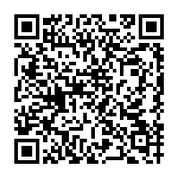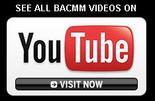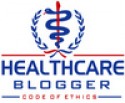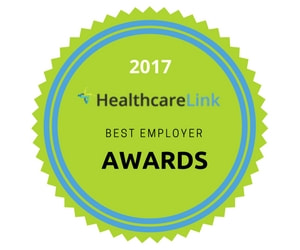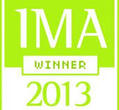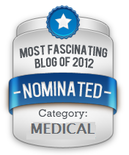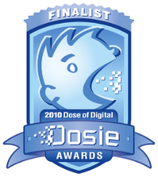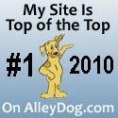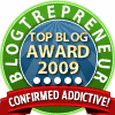The e-mail informed me that a colleague, a man I respected greatly, had tendered his resignation at the hospital. That coming Friday would be his last day. There would be an informal gathering for staff at the hospital cafeteria and that would be that.
I was shocked. The physician in question was an institution at the hospital. As far as I knew he was happy, his patients loved him, he was respected by his peers. I could think of no earthly reason for him to go. This did not did not sound like the old friend I knew.
I did what any friend would do: I picked up the phone and called him.
“I just got the e-mail. What’s going on?” I asked “Is something up at home? Is everything okay with Jane and the kids?”
“Nothing’s wrong. I’ve just been doing a lot of thinking. I’ve decided I want to spend time with the kids and explore some outside projects.
Outside projects? What sort of outside projects?
My friend was the not kind of guy who you thought of as spontaneously quitting his job. I pressed him. He finally broke down and confessed. He was miserable at work.
“It’s the bean counters. They’re everywhere. Every day I get an e-mail that says I’m underperforming on this metric or that metric. It’s making me crazy. My self-esteem can’t take it. Last week, I got an e-mail that told me I need to do a better job of answering patient e-mails. I didn’t even know they were allowed to e-mail us. How long has this been going on? I tell you, I love my patients, but I just can’t take it anymore.”
We talked for a solid forty-five minutes.
He told me about his troubles. He had been keeping longer and longer hours at work, spending an ever increasing number of hours on administrative tasks. His patient care was deteriorating as a result. He was putting on weight. He was testy. Relations with colleagues and support staff had eroded dramatically as a result.
As we talked, it became clear that the hospital’s electronic medical record was the culprit. My friend had been driving himself crazy trying to keep up. But try as he might, it just wasn’t working. His brain was simply not wired for the task. And his perfectionist nature — a valuable asset in the operating room – did not give him the room to work with the new system. Try as he might, he simply could not make the adjustments needed to make the practice medicine the old way.
“You’re sure there isn’t anything I can do to make you change your mind?” I asked.
There wasn’t. I was sorry to see him go, but I understood why the decision was the right one for him. The changes that he was asking himself to make were just too much for him. The sacrifice just wasn’t worth it. He was doing the right thing.
Change can be a painful thing. In the heat of the moment, it’s easy to forget that we’re going through a period of unprecedented change, unlike anything in the history of Medicine. Not everybody is going to make it.
The new science of medicine is going to require a new kind of physician. One that is at least as comfortable using technology and data as they are reviewing test results and examining patients. That change is going to take time. And it is going to take patience. Some people, like my friend, are not going to make the transition.
That’s not to say there won’t be bumps along the way.
For example, at this point, it’s clear to almost everybody that the complaints we’re hearing about the early generation of electronic medical records have at least some validity. Many systems are clunky, and that’s putting it nicely. “A medieval torture device with a mouse” was how one colleague described his system.
He wasn’t far from the mark. And the companies involved have done a pretty awful job of responding to criticism (I say this as a physician speaking to my colleagues, not as a representative of my employer). It’s almost never a good idea to ignore your customer’s complaints or to blame problems on “ignorant users.”
I don’t blame people for being frustrated.
The good news is that the market is responding. New solutions are appearing every day. And a lot of very smart people are working on the problem.
I can confidently predict that within a few years the problems we are talking about today will be a thing of the past. The next generation of EHR systems will be lightweight, customizable and allow doctors to practice medicine without getting in the way.
The day is not far off when any resident will be able open up their laptop and crunch his or her patient data in the same way I can open up Excel spreadsheet on my home computer and look at my spending habits. They’ll be able to compare the effectiveness of the medications they prescribe themselves, look for suspicious patterns, compare their numbers against CMS benchmarks and do a hundred other things that sound like the stuff of science fiction today.
The Millennials are Coming!
By definition, the younger generation of physicians is far more open to technology, more comfortable with managing a large volume of information and used to quickly adapting to new technologies. After all, they’re trying out new apps and new programs every day. What’s new to my generation is old news to them. Millennials are more comfortable than the generations before them. From what I’ve seen, Generation-Y is even more adept.
That’s encouraging to me and should be for you too. This makes them the perfect candidates to practice medicine in the new era where technology and data will be as important as instincts and classical training once were.
I’m absolutely convinced that coming generations of healthcare providers will not only be comfortable using these new technologies but will demand access to them. Data-driven medicine will become not only widely accepted but the new standard of care. The idea of practicing medicine without digital tools and without data will be unthinkable, like going back to the days before vaccines and antibiotics!
I can confidently predict that one day, we’ll look back and say “remember how we used to have to do this?” And laugh.
My friend who quit medicine?
I understand why he left and I wish him the best, but I have to admit that I wish he’d stuck around. The younger generation may get technology and may be more comfortable with rapid and disruptive system change, but there is much for them to learn about our craft. My friend was — and remains — a good doctor.
There is much that he had to share.
I think back to the kind and generous mentors who guided me through my medical school years and through my early years in practice. It is no exaggeration to say that I would not be the doctor I am today without their generous support and encouragement.
If you’re of my generation and feeling frustrated or confused by the changes that are playing out in our field today, I hope you’ll consider staying staying around just a bit longer.
These new guys? They may have their iPhones and their patient e-mails down, but that doesn’t mean they don’t have a world of learning to do. And this is where we can help.
It remains my personal operating principle that it is each and every physician’s duty to leave medicine better than on the day we found it.
And my friend? Well, let’s just say I have a sneaking suspicion he’ll be back.

 RSS Feed
RSS Feed
